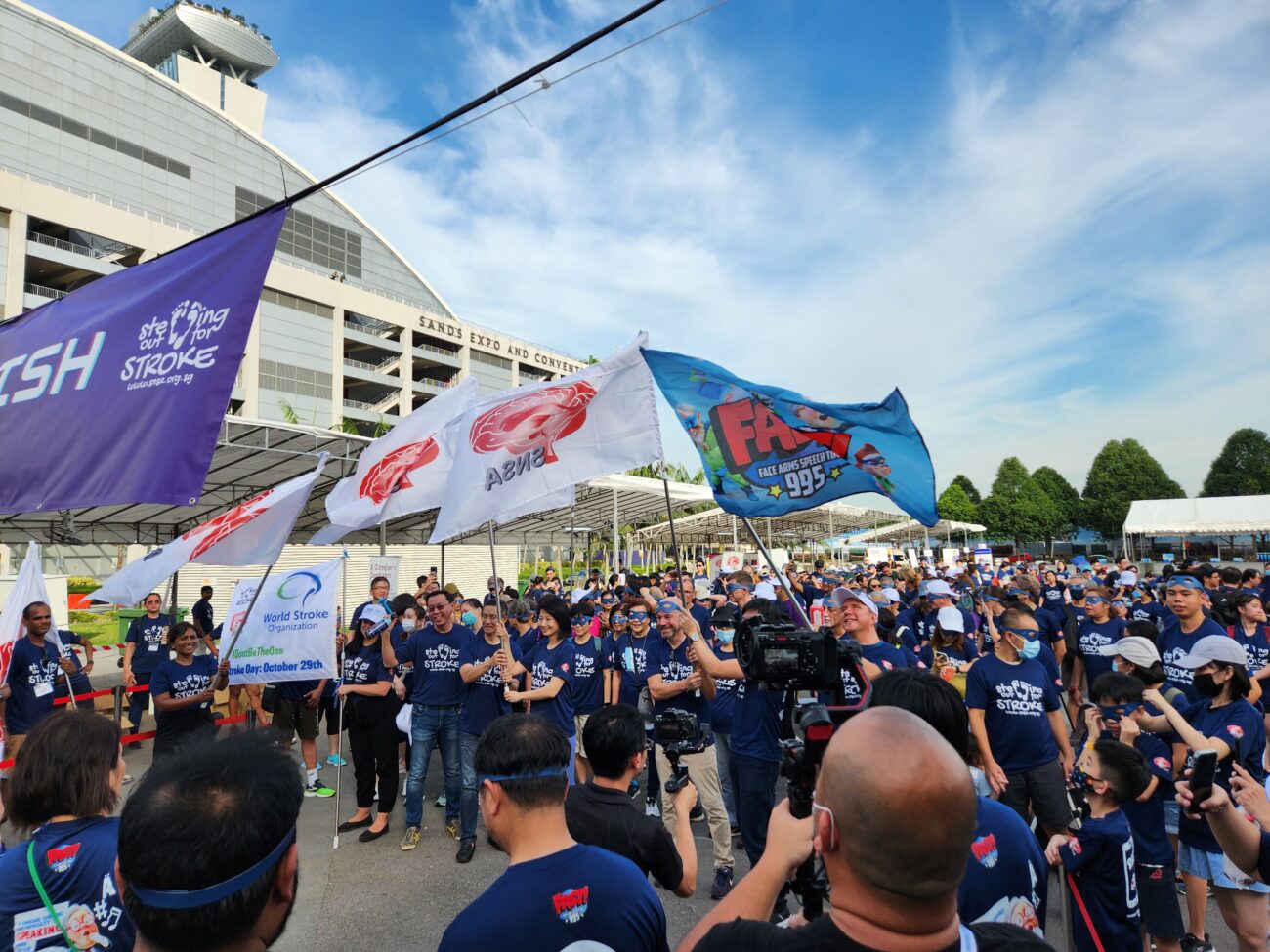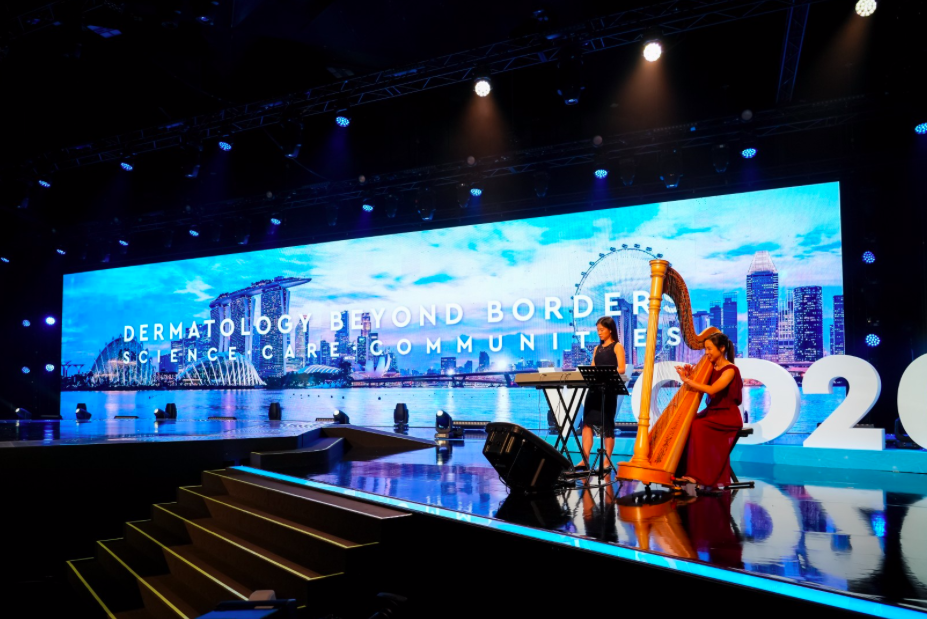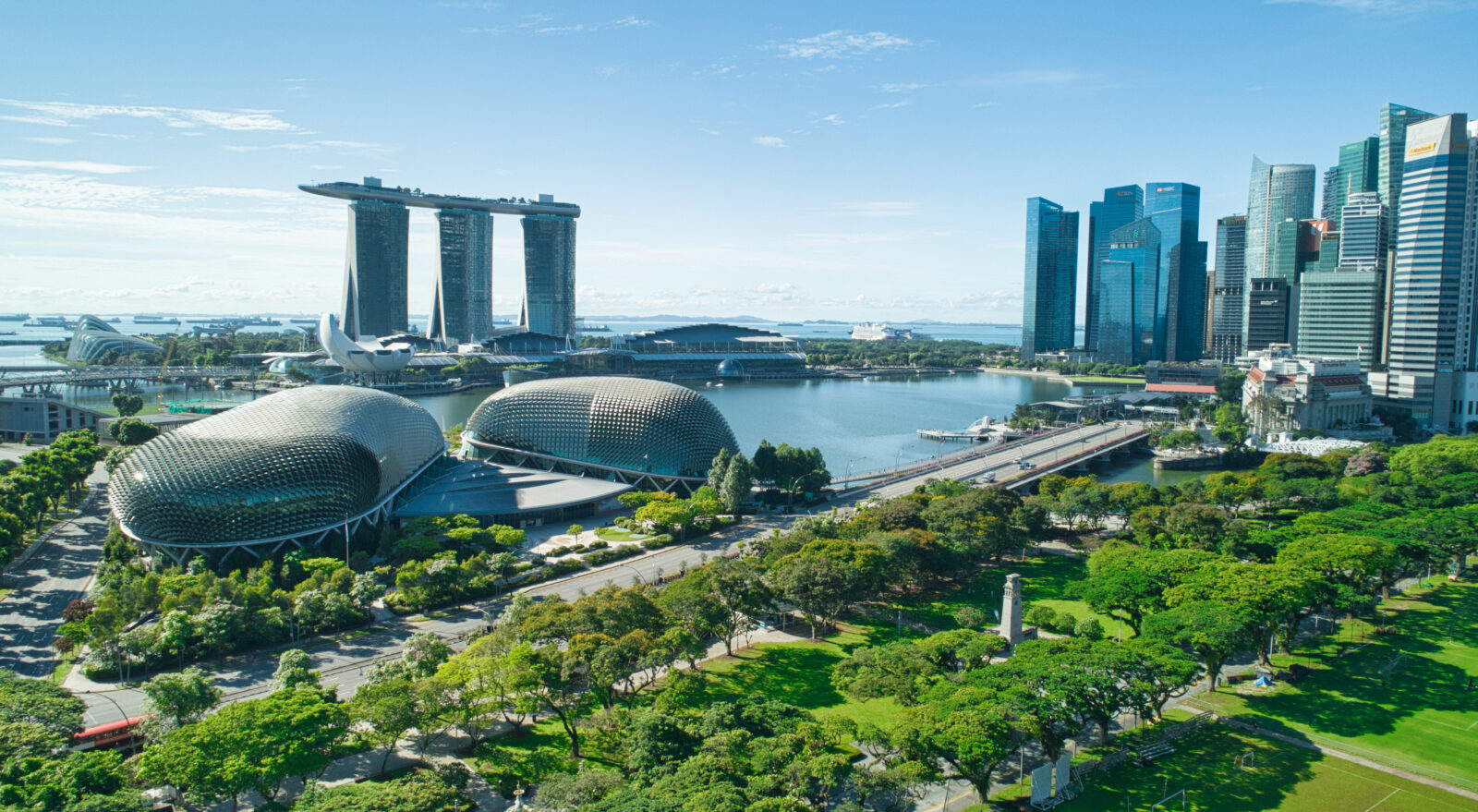Home to an airport serving nearly 100 airlines and connections to 148 cities in 49 countries and territories worldwide, calling Singapore an international hub is putting it lightly. The Lion City isn’t just one island — it’s home to 64 offshore islands and a melting pot of cultures and cuisines, from the Malay to the Chinese, Indian, and Eurasian ethnicities.
Despite sporting a skyline of skyscrapers, Singapore is considered one of the world’s greenest cities, with nearly half of the land area — nearly 700 sq. km. — under green cover. This is part of the Singapore Green Plan 2030, which is a whole-of-nation movement to advance Singapore’s national agenda on sustainable development, aligned with the UN Sustainable Development Goals. In addition, the Singapore Tourism Board (STB) and Singapore Association of Convention & Exhibition Organisers & Suppliers (SACEOS) has worked together to launch the MICE Sustainability roadmap in 2022, which sets out clear targets and strategies to raise sustainability standards across Singapore’s MICE industry, guiding associations in achieving their sustainability goals. Singapore is also home to more than 7,000 multinational corporations, 300 venture capital and private equity funds, and nearly half of Asian regional headquarters — not to mention Southeast Asia’s largest concentration of unicorns, and is well-placed to facilitate collaborations that can help associations scale their impact.
As Dr Edward Koh, Executive Director, Conventions, Meetings & Incentive Travel, Singapore Tourism Board, explains: “Legacy initiatives not only spark collaboration within association communities to contribute to a cause, they also offer opportunities for international visitors to engage with our local community to create lasting impact.”
Catalysts for change
As associations continue to brainstorm ways to leave lasting legacies on the host destination, they’re looking to sustainable events as a solution to leave an impact on wider regional and global communities, whether that be through fundraisers for grants or charities.
“Business events such as association meetings play a key role in Singapore’s tourism sector,” says Koh. “Beyond economic gain, business events create broader benefits for society, such as exchange of knowledge that catalyzes further R&D and innovation, raise public awareness of key community issues, drive environmental progress through new pilot initiatives, and more.”
Cases in point
One example is the 14th World Stroke Congress that took place last October at the Suntec Convention & Exhibition Centre that drew more than 4,400 visiting and virtual delegates from 107 countries and raised SG$68,000 at a walkathon to support stroke survivors and their caregivers as well as greater awareness on stroke. Nearly 800 people — including 180 volunteers and 100 stroke survivors— took part in the Stepping Out For Stroke walkathon along the Bayfront area, organized by the Singapore National Stroke Association (SNSA), which set the record for the largest mass walk wearing superhero masks in the Singapore Book of Records.

As Dr. Sean I. Savitz, co-chair of the Congress Planning Committee and panellist, put it: “I think Singapore is a great place to have this conference — it’s at the epicentre when it comes to healthcare, technology, entertainment, and culture.”
In July, the Dermatological Society of Singapore (DSS) under the auspices of the International Leagues of Dermatological Societies (ILDS), organized the prestigious World Congress of Dermatology (WCD) at Suntec Convention and Exhibition Centre and Pan Pacific Singapore, attracting more than 12,000 attendees from 150 countries to the nearly week-long event designed around positive and lasting impact. In honour of the 25th anniversary, WCD created 25 concrete actions designed to make the congress more environmentally responsible. As Dr Edward Koh said, WCD was “a strategic fit with Singapore’s identified growth and priority industries, which include sustainability and climate change, MedTech and advanced manufacturing”.
Scholarships were awarded to support dermatology trainees from less privileged parts of the world (as identified by the World Bank) to visit Singapore and broaden their knowledge, and L’Oréal partnered with the International League of Dermatological Studies (ILDS) and the WCD to acknowledge the winners of the fourth edition of the International Awards for Social Responsibility in Dermatology. A €20,000 grant was awarded to each of the high-impact projects across 5 key regions, North America, South & Central America, Europe, Africa & Middle East as well as Asia Pacific, focusing on the areas of prevention and education on skin health; improved quality of life and self-esteem for people facing skin issues; and access to care coverage and surgery. Given the focus on sustainability as part of the congress, organizers encouraged attendees to use public transport, giving them a WCD-branded, pre-loaded transit pass, and worked with a garden city charity fund to raise money to help make Singapore greener.

This month, the Wikimedia movement’s annual conference, Wikimania 2023, organized by volunteers at US-based non-profit Wikimedia Foundation, was held at Suntec Convention and Exhibition Centre from 16 to 19 August with a theme of “Diversity, Collaboration, Future.” As a pre-conference activity, Singapore’s National Heritage Board partnered with the National Youth Achievement Award (NYAA) to host a public photo competition on Wikipedia Commons, called Wiki Loves Living Heritage Singapore. In an effort to extend engagement beyond conference delegates and to the community, the competition was open to anyone residing in Singapore and designed to promote the country’s strong local cultural heritage through photos intended to live on as digital assets. As a way to tie into the conference, the top 10 winners’ work was featured during Wikimania, and they received plaques and certificates at the closing ceremony.
Another example of how an association plans to reduce its carbon footprint in a significant way is by connecting venues via the local public transportation network, which is what Rotary International (RI) plans to do for its 2024 convention held at Marina Bay Sands and the National Stadium. Throughout the course of five event days, the convention expects up to 25,000 delegates. With the use of a transit card pre-loaded with credit, RI can make a significant reduction of the convention’s carbon footprint, eliminating the use of 40-seater coaches that would need to make 875 single trips between the venues and hotels.
Plan your event and leave a lasting impact now: www.visitsingapore.com/mice
